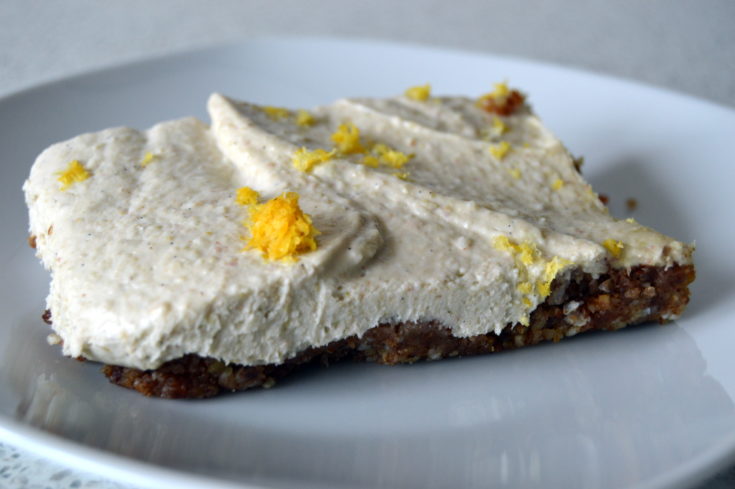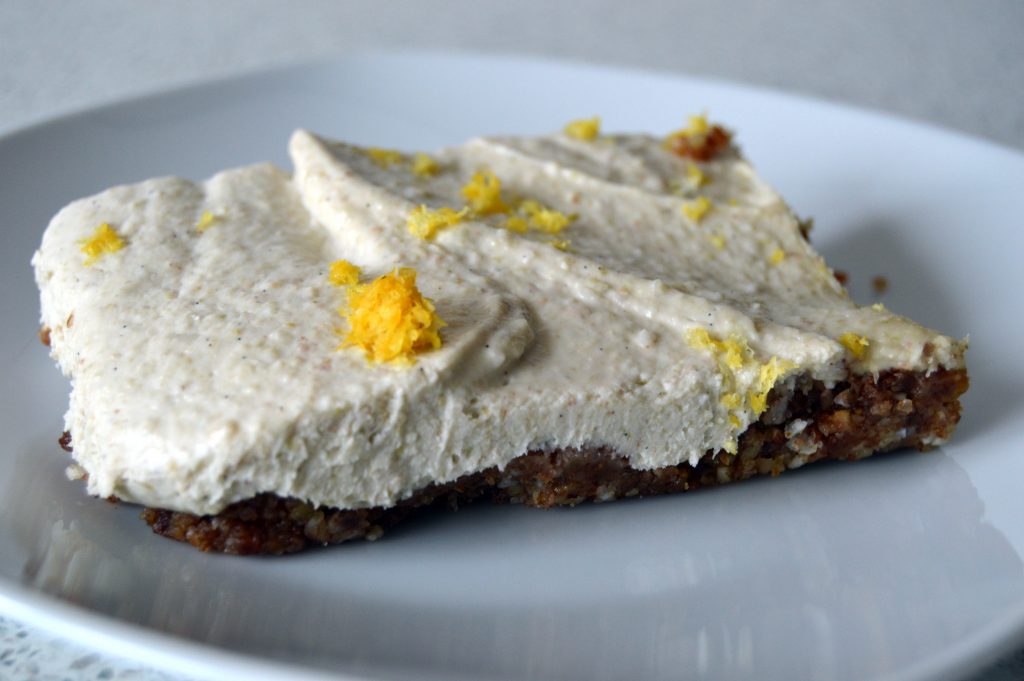Zesty lemon cheesecake with two types of nuts (cashew and pecan) and two types of seeds (buckwheat and coconut).
Unlike many other raw vegan cheesecakes that are made purely with cashew nuts the recipe here has buckwheat added.
This makes the vegan cheesecake less heavy, dense and much more enjoyable.
Cashews are very easy to overeat and the buckwheat acts as a very nutritious padding.
It’s sweetened with dates and xylitol but you can substitute the xylitol for a sweetener of your choice such as maple syrup or date syrup.
Raw Lemon Cheesecake

Healthy lemon cheesecake that is dairy free and made from nuts and seeds. It tastes creamy and light but also bursting with goodness. Suitable for vegan, raw vegan, keto and healthy wholefood diets.
Ingredients
- 100g / 1 cup pecans (sub for walnuts or similar)
- 100g / ⅔ cup dates
- 50g / ½ cup dessicated coconut
- 100g / ⅔ cup cashew nuts
- 6 tbsp sweetener like date syrup or xylitol if keto
- 50g / ½ cup buckwheat (soaked for 10 minutes or more)
- vanilla (either half a pod scraped or a teaspoon of extract)
- 3 lemons – juice and zest of
- 1 tablespoon coconut oil
Instructions
- Using a food processor blend the pecans, dates and coconut together.
- Spread out this cheesecake base mixture on a tray to make the base.
- Blend together the cashew nuts, vanilla, lemon juice and coconut oil. Add enough water to make a smooth consistency.
- Add the buckwheat to the lemon cashew mixture and blend until all broken up. You may need to add more water.
- Spread out this lemon chesecake on top of the base and sprinkle with the lemon rind.
- Refrigerate for half an hour or so and the raw vegan lemon cheesecake it is ready to eat. Will keep for 4-5 days in the fridge.
Nutrition Information
Yield
12Serving Size
1Amount Per Serving Calories 180Total Fat 12gSaturated Fat 3gTrans Fat 0gUnsaturated Fat 8gCholesterol 0mgSodium 72mgCarbohydrates 18gFiber 3gSugar 11gProtein 3g


Great recipe!! Looking forward to making it for dinner guests this weekend! Is coconut a seed? ☺
Looking in my dictionary;
Botanically speaking, a coconut is a fibrous one-seeded drupe, also known as a dry drupe. However, when using loose definitions, the coconut can be all three: a fruit, a nut, and a seed. Botanists love classification.
I call it a seed as I think that’s the most accurate, but seed, nut and fruit are also right!